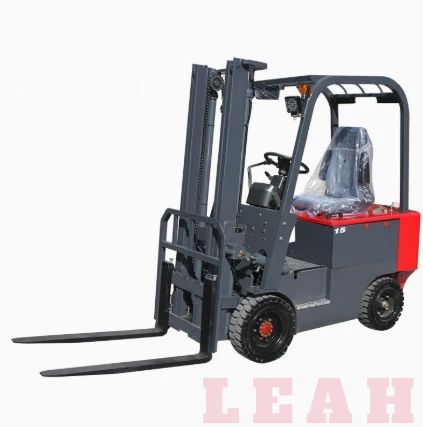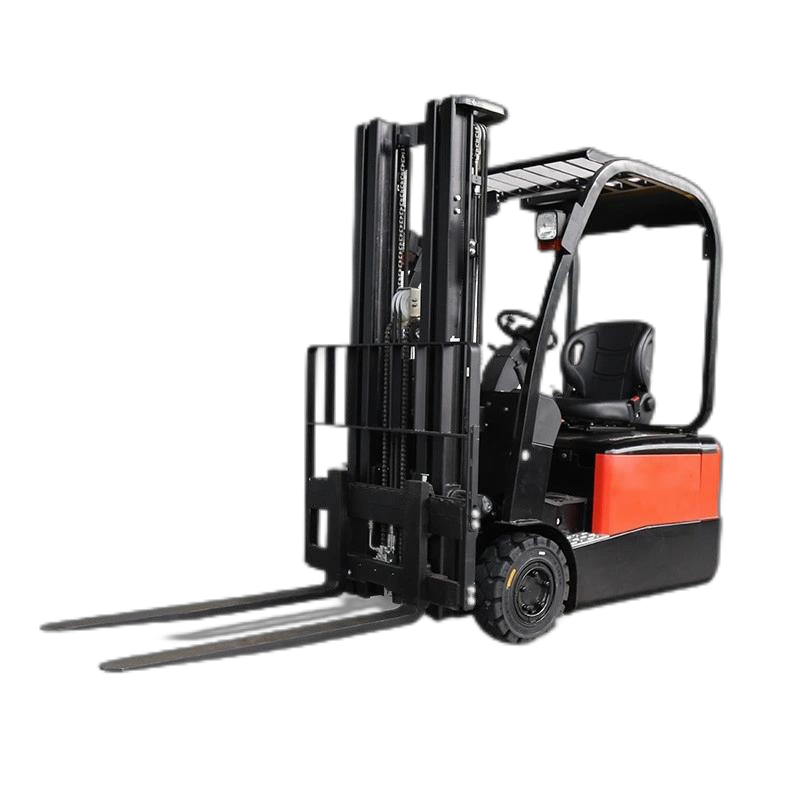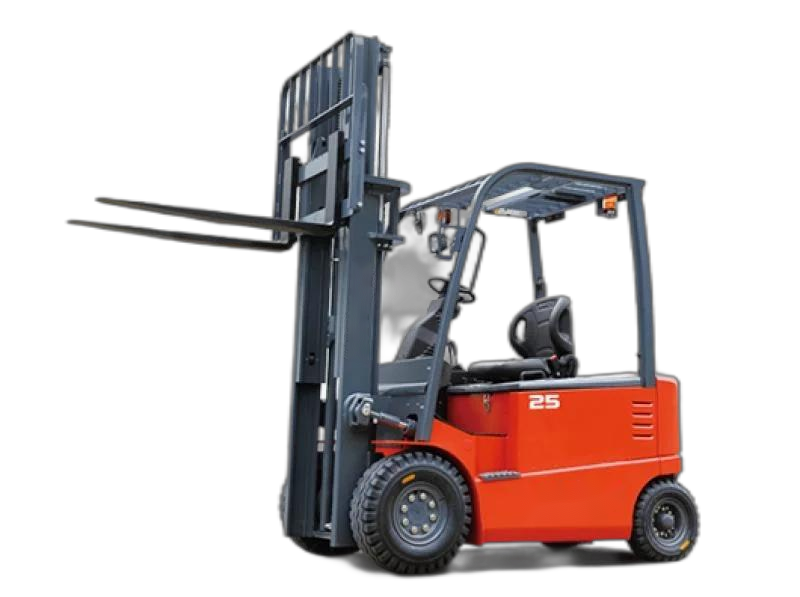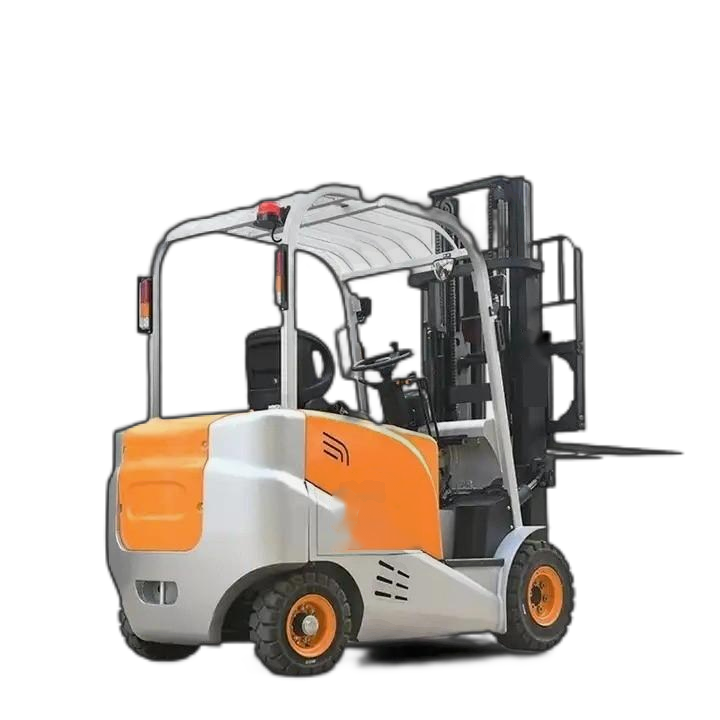Handling of Special Situations
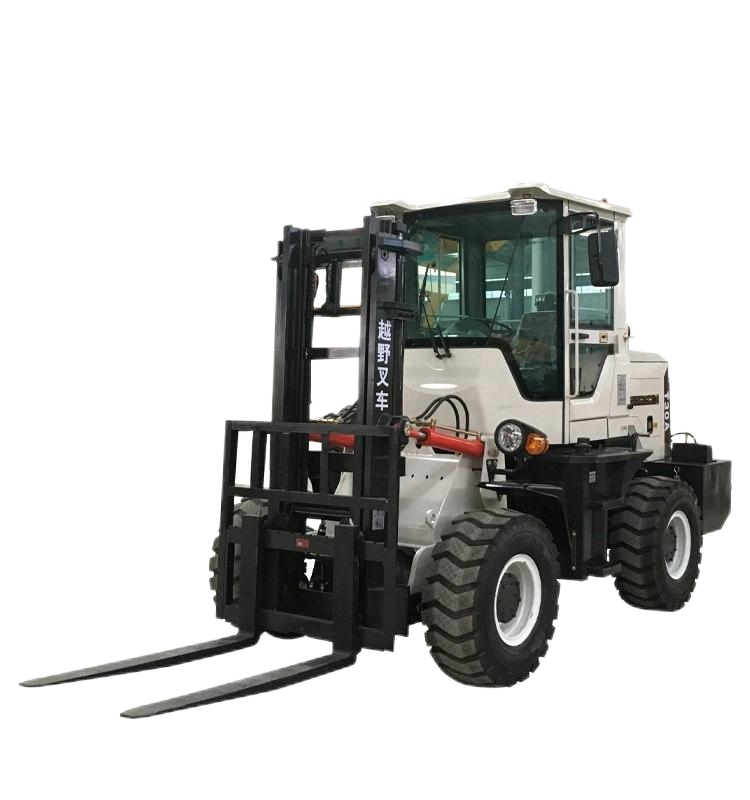
(1) Response to Adverse Weather Conditions
Operation in Rainy Weather: When operating in rainy weather, the road surface is slippery, which affects the braking distance and steering stability of the vehicle. The driving speed should be reduced, and the safe distance from the vehicle in front should be increased. Avoid sudden braking and sharp turns. Regularly check the braking system to ensure good braking performance. At the same time, pay attention to preventing rainwater from entering key components such as the engine and electrical system to avoid short - circuits or damage.
Operation in Snowy Weather: In snowy weather, the road surface freezes, reducing adhesion, and off - road forklifts are prone to skidding. Before operation, remove the snow and ice from the vehicle and the work site, and install anti - skid chains on the tires to increase the vehicle's grip. When driving, accelerate and decelerate slowly, and avoid sudden steering movements. When loading and unloading goods, pay more attention to the stability of the goods to prevent them from slipping.
Operation in Windy Weather: In windy weather, the stability of off - road forklifts is affected, especially when handling taller or larger - volume goods. Outdoor operations should be avoided as much as possible in windy weather. If operation is necessary, lower the height of the goods to reduce the windward area, and do not drive too fast. Also, pay attention to objects around that may be easily blown by the wind to avoid collision accidents.
Operation in Snowy Weather: In snowy weather, the road surface freezes, reducing adhesion, and off - road forklifts are prone to skidding. Before operation, remove the snow and ice from the vehicle and the work site, and install anti - skid chains on the tires to increase the vehicle's grip. When driving, accelerate and decelerate slowly, and avoid sudden steering movements. When loading and unloading goods, pay more attention to the stability of the goods to prevent them from slipping.
Operation in Windy Weather: In windy weather, the stability of off - road forklifts is affected, especially when handling taller or larger - volume goods. Outdoor operations should be avoided as much as possible in windy weather. If operation is necessary, lower the height of the goods to reduce the windward area, and do not drive too fast. Also, pay attention to objects around that may be easily blown by the wind to avoid collision accidents.
(2) Emergency Handling of Vehicle Failures
Failures During Driving: If the vehicle malfunctions during driving, such as engine stalling, brake failure, abnormal steering, etc., immediately park the vehicle in a safe area, turn on the hazard warning lights, and set up warning signs at an appropriate distance behind the vehicle to prevent rear - end collisions by other vehicles. It is strictly prohibited to continue operating without properly handling the faulty vehicle. Instead, contact professional maintenance personnel for inspection and repair in a timely manner.
Failures During Loading and Unloading Operations: If the vehicle malfunctions during the loading and unloading of goods, such as the hydraulic system failing to lift or tilt the goods, remain calm and do not force the operation. Under the premise of ensuring safety, take measures to secure the goods to prevent them from falling. Then, cut off the vehicle's power supply, set up warning signs, and notify maintenance personnel for handling.
Failures During Loading and Unloading Operations: If the vehicle malfunctions during the loading and unloading of goods, such as the hydraulic system failing to lift or tilt the goods, remain calm and do not force the operation. Under the premise of ensuring safety, take measures to secure the goods to prevent them from falling. Then, cut off the vehicle's power supply, set up warning signs, and notify maintenance personnel for handling.





